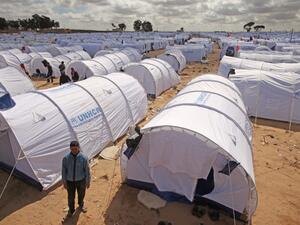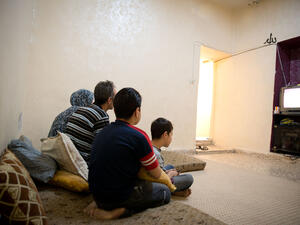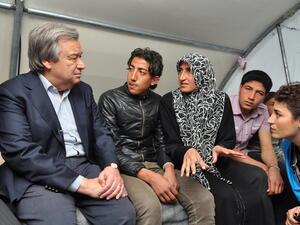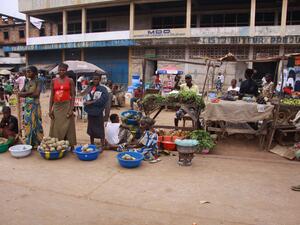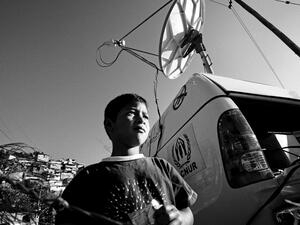UNHCR shifts protection and assistance operation in southern Tunisia to urban areas
UNHCR shifts protection and assistance operation in southern Tunisia to urban areas
Yesterday, on 1 July, UNHCR completed the transfer of its services and activities for persons of concern out of the Choucha transit camp in southern Tunisia to nearby urban areas. As of latest information, on 28 June, over 600 refugees were living in Tunisia's southern cities of Ben Gardane and Medenine.
The population at Choucha has declined in size since 2011, allowing UNHCR to shift its operations to urban areas. The closure of the camp has the support of the Tunisian authorities, who have expressed readiness to offer temporary residence to some 250 refugees who are not being resettled in other countries.
Departures to resettlement countries from Choucha under a global solidarity resettlement initiative that was launched in response to the mass influx from Libya in early 2011 began to accelerate in the middle of last year.
In urban areas, refugees are guaranteed access to basic services such as healthcare and education. They receive a relocation grant and support with securing accommodation from UNHCR's partner, the Tunisian Red Crescent. As well as financial assistance, refugees can participate in language and vocational training as well as micro projects to generate their own income.
UNHCR has been working to find solutions for the population in Choucha since the camp's opening in 2011. At the peak of the crisis the camp was receiving up to 18,000 people a day. The majority repatriated voluntarily to their home countries.
UNHCR is continuing to advocate for the adoption by the Tunisian authorities of a formal legal status for refugees as this would help safeguard their access to socio-economic rights, including income generating activities. UNHCR welcomes steps already taken by the Tunisian government, such as allowing unhindered access to national health and education systems. Additionally, the Tunisian government began finger-printing refugees in southern Tunisia as a step towards granting temporary residence.
Under an initiative launched in 2011, a total of 3,176 refugees have departed to resettlement countries, mainly the United States (followed by Norway, Sweden, Australia, Canada and Germany).
Libya's 2011 civil war triggered a massive influx of refugees and migrant workers into southern Tunisia. For a period of six months starting in February 2011, an estimated one million people sought refuge there, including 200,000 non-Libyan nationals.
As Tunisia does not have an asylum framework yet in place, UNHCR conducted refugee status determination for more than 4,000 refugees.
For more information on this topic, please contact:
- In Tunis: Dalia al Achi [email protected] and Julia Gouyou Beauchamps [email protected]
- In Geneva: Dan McNorton [email protected]


